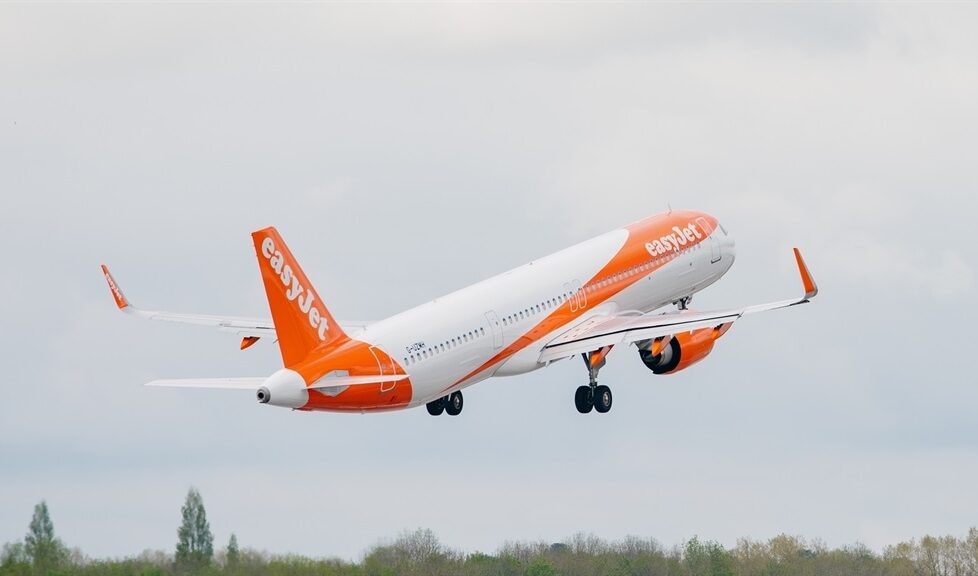easyJet Puts Zero Emission Flying Technology at Center of Climate Plan

Low-cost airline easyJet announced the release of its net zero roadmap, outlining the company’s plan to address its climate impact and achieve net zero emissions flying by 2050. The plan focuses heavily on the development and adoption of zero carbon emissions technology, with a particular focus on hydrogen-powered flying.
The plan also includes transitioning away from “out-of-sector carbon offsetting,” which the airline views as a short-term measure and mechanisms such as the EU Emissions Trading System or CORSIA.
Johan Lundgren, CEO of easyJet, commenting on the launch of the roadmap, said:
“Today, we’re the first airline to outline an ambitious roadmap in which zero carbon emission technology plays a key role to take us to net-zero emissions by 2050 and ultimately to zero carbon emission flying across our entire fleet.”
The aviation industry has come under scrutiny as a significant source of greenhouse gas (GHG) emissions, responsible for 2-3% of global emissions, with that figure potentially rising dramatically over the coming decades if no action is taken. Several initiatives are being pursued in order to address the climate impact of the industry, typically involving efforts to improve aircraft efficiency, develop sustainable aviation fuels, or create aircraft utilizing low or zero carbon propulsion systems such as electric or hydrogen-based.
easyJet stated that its roadmap is based on today’s knowledge and technological outlook, and noted that “the development of zero carbon emission technology has accelerated exponentially,” over the past couple of years. Based on the current advances, easyJet has identified hydrogen as the most promising zero emission technology. The airline said that it is working with several partners including Airbus, GKN Aerospace, Cranfield Aerospace Solutions and Wright Electric to accelerate zero carbon emission technology, and has announced a multi-million-pound investment in a partnership with Rolls Royce to support the development of hydrogen combustion engine technology for narrowbody aircraft.
Lundgren said:
“I’m delighted this ambition is soon moving one step closer today, as our partner Rolls-Royce is making the final preparations for the first hydrogen engine ground tests to commence.”
According to easyJet’s roadmap, the airline aims to reduce its carbon emissions per passenger by 78% by 2050, with residual emissions addressed by carbon removal technology to physically remove carbon from the atmosphere and permanently store it underground. The company has signed an agreement with Airbus to support the development of carbon removal technology.
As zero emissions technologies develop, easyJet will use Sustainable Aviation Fuel (SAF) to achieve emissions reductions. The airline announced that it has contracted all of the SAF required by the roadmap over the next five years from jet fuel supplier Q8Aviation.
While the airline looks to transition away from offsetting, easyJet said that it will continue to offset for flights booked until the end of 2022, and in 2023 will offer a voluntary offset option for customers.
Other measures outlined in the roadmap include operational improvements and efficiencies, fleet renewal, and airspace modernization. The company announced a multi-million-pound investment into aircraft software to help achieve substantial emission reductions by enabling the optimization of aircraft descents, and plans for a list price investment of $21 billion to renew its fleet over the next several years. The company said that it is also working with public authorities across Europe to advocate for the modernization of airspace to implement a more environmentally-optimized and efficient air traffic management system.
Lundgren added:
“Decarbonising aviation is a major undertaking for which the whole sector is coming together, but we also require the support from UK and European governments to help us achieve net-zero and we have clearly outlined the actions needed from them.
“Now we have our roadmap we can ensure we are focused on the things that are going to get us to net-zero in the years to come, helping to ensure there is a sustainable future for aviation for the benefit of the next generation and our planet.”
The post easyJet Puts Zero Emission Flying Technology at Center of Climate Plan appeared first on ESG Today.